Meet the courageous women who fought for India's freedom. Inspiring stories of resilience and sacrifice.
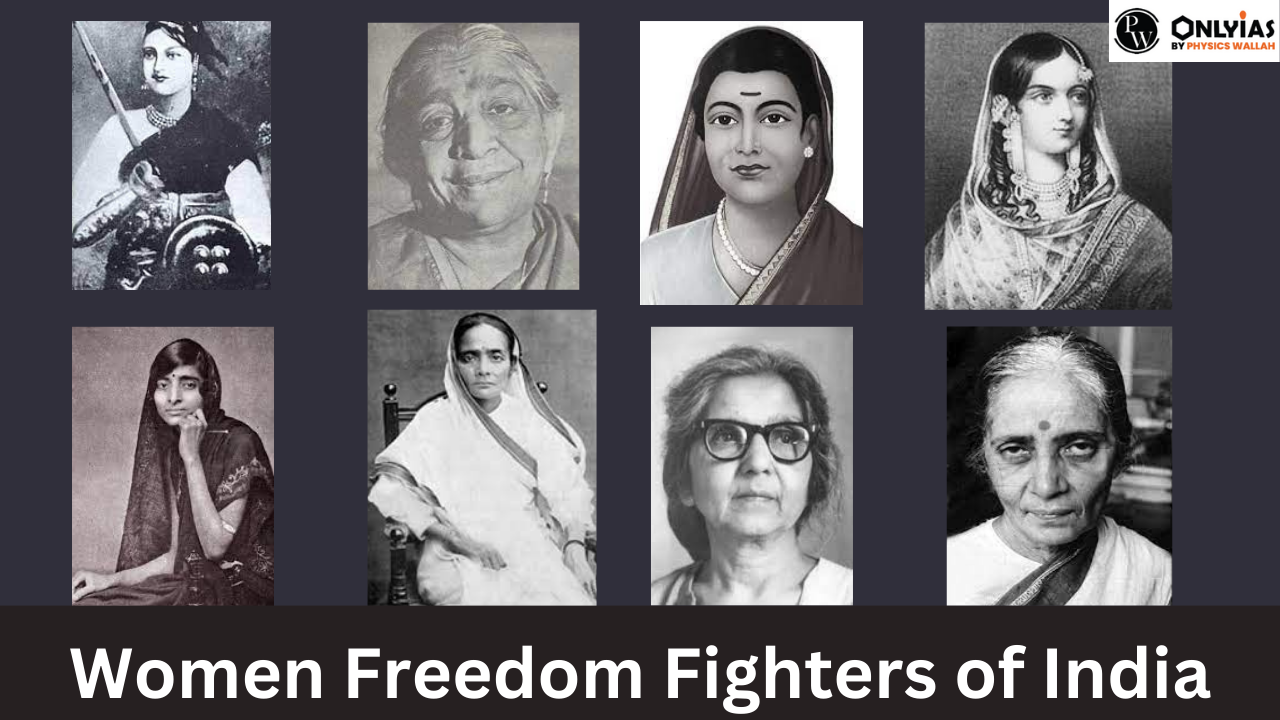
Women freedom fighters of India: When discussing India’s freedom struggle, the significant contributions of women freedom fighters cannot be overlooked. These women, hailing from various backgrounds, demonstrated exceptional courage and determination in their fight for independence. Many women actively participated in the Gandhian movement of the 1920s, particularly in the Non-Cooperation Movement, which saw widespread support from women across India. Their involvement also led to the emergence of several women’s organizations, highlighting their pivotal role in the independence movement. These women were not just participants but leaders who inspired others to join the fight for India’s freedom.
The history of women’s involvement in India’s struggle for freedom dates back to many centuries, and there were several early women freedom fighters who paved the way for later generations. Here are a few notable early women freedom fighters in India:
India’s struggle for independence was marked by the indomitable spirit and unwavering dedication of numerous individuals who fought against colonial rule. Among these brave souls were remarkable women who played pivotal roles in shaping the course of the nation’s history. These women, undeterred by societal norms and adversities, stood shoulder to shoulder with their male counterparts in the fight for freedom.
The following table provides concise descriptions of the roles and contributions of female freedom fighters in India.
List of Female Freedom Fighters of India |
||
|---|---|---|
| Freedom Fighter | Contributions and Role | Notable Movements and Actions |
| Rani Lakshmibai | Led resistance against British forces in the Indian Rebellion | Indian Rebellion of 1857 |
| Sarojini Naidu | Prominent poet and activist, inspired masses with speeches | Non-Cooperation Movement, Civil Disobedience Movement |
| Kamala Nehru | Active participant in protests and nationalist activities | Salt March, protests against repressive laws |
| Kasturba Gandhi | Advocate for nonviolent resistance and social reform | Supported Mahatma Gandhi, endured hardships |
| Aruna Asaf Ali | Organized and led protests, hoisted Congress flag defiantly | Quit India Movement |
| Begum Hazrat Mahal | Led troops in battles during the 1857 uprising | Indian Rebellion of 1857 |
| Matangini Hazra | Fearless protester, led Quit India Movement procession | Quit India Movement |
| Usha Mehta | Established “Congress Radio” to spread message of independence | Used radio broadcasting for mobilization |
| Annie Besant | Championed Indian self-rule and various social causes | Home Rule Movement |
| Durgabai Deshmukh | Advocated for women’s rights and social reform | Salt Satyagraha, Quit India Movement |
| Vijay Laxmi Pandit | First Indian women ambassador at UN. | Fight Against Colonialism, Promotion of Women’s Rights |
| Madam Bhikaji Cama | The “Flag of Indian Independence”: Madam Cama designed and unfurled the “Flag of Indian Independence” in Stuttgart, Germany, in 1907. | Formation of Paris Indian Society |
| Kamla Chattopadhyay | The first woman to be elected for a legislative seat in India(madras province) | Khadi Movement |
| Sucheta Kriplani | First women Chief minister (UP) | Quit India Movement |
| Kittur Chennamma | First female ruler to rebel against the British | First Kittur Rebellion |
| Savitribai Phule | First lady teacher in India | Promotion of Widow Remarriage |
| Lakshmi Sahgal | India Democratic Women Association(IDWA)(1981 ) | Formation and Leadership in the Indian National Army (INA) |
1. Rani Laxmi Bai
Rani Laxmi Bai, the Queen of Jhansi, is a legendary figure in the history of India’s struggle for independence. Born in 1828, she exemplified courage and valor during a critical period of colonial rule. After her husband’s death, she became the regent for her young son and played a significant role in resisting the British annexation of Jhansi. Her defiance against the Doctrine of Lapse and her pivotal role in the Indian Rebellion of 1857 made her an iconic freedom fighter.
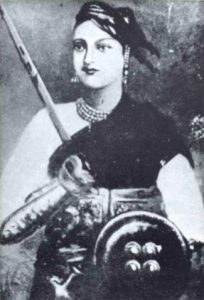
Rani Laxmi Bai’s fearless leadership on the battlefield, where she fought alongside her troops, earned her the epithet “Warrior Queen.” Her legacy is built on her unyielding spirit and dedication to India’s independence. Despite her tragic death in battle in 1858, her memory lives on as an enduring symbol of the fierce determination and patriotism that defined India’s struggle against British colonialism.
2. Sarojini Naidu
Sarojini Naidu, often referred to as the “Nightingale of India,” holds a distinguished place among the women freedom fighters of India. She played a pivotal role in awakening and mobilizing women across the country, actively advocating for their rights and participation in the freedom movement. In 1925, she achieved a historic milestone by becoming the first Indian woman to preside over the Indian National Congress, marking a significant moment in Indian politics and the women’s movement.
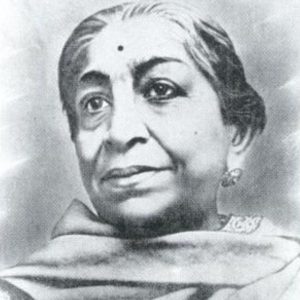
Her influence extended beyond India’s borders as she traveled to the United States in 1928 as a global ambassador for Mahatma Gandhi, spreading the message of nonviolence and India’s quest for independence. Sarojini Naidu took on leadership roles during critical moments in the freedom struggle, guiding the movement when Gandhi was arrested in 1930 and participating in the Round Table Conference in London in 1931. Her unwavering commitment to India’s freedom was evident as she was arrested during the ‘Quit India’ movement in 1942, spending 21 months in jail.
Her poetic talents earned her the title of “Nightingale of India,” and her literary work was admired for its beauty and patriotic themes. Post-independence, she continued to serve her nation, becoming the first woman to hold the position of Governor in India, overseeing the state of Uttar Pradesh. Sarojini Naidu’s life and contributions remain an enduring source of inspiration for generations of Indians.
3. Kamala Nehru
Kamala Nehru, born Kamala Kaul on August 1, 1899, was a notable figure in India’s struggle for independence and the wife of Jawaharlal Nehru, who later became the first Prime Minister of India. She was born into a Kashmiri Brahmin family in Delhi and married Jawaharlal Nehru in 1916, forging both a personal and political partnership dedicated to India’s freedom struggle.

Kamala Nehru actively participated in various protest activities, including civil disobedience campaigns, and supported her husband in his political career. She was a strong advocate for women’s rights and played a role in the founding of the All India Women’s Conference (AIWC). Tragically, her health deteriorated due to tuberculosis, and she passed away on February 28, 1936, at the age of 36. Her dedication to India’s independence and her support for her husband’s political career continue to be remembered as an important part of India’s history.
4. Kasturba Gandhi
Kasturba Gandhi, affectionately known as “Ba,” was a pivotal figure in India’s struggle for independence alongside her husband, Mahatma Gandhi. Born in 1869, she married Gandhi at a young age and became an unwavering supporter of his philosophy of nonviolence and civil disobedience. Kasturba actively participated in various freedom movements, standing by her husband’s side in protests and marches, including iconic events like the Salt Satyagraha and the Quit India Movement.
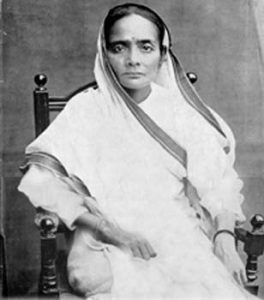
She symbolized simplicity, leading a humble life in accordance with Gandhi’s principles of self-sufficiency and non-materialism. Kasturba’s commitment to women’s rights and education challenged traditional gender roles, and her sacrifices, including imprisonment, underscored her dedication to India’s freedom. Tragically, she passed away in prison on February 22, 1944, leaving behind a legacy of selflessness, sacrifice, and unwavering devotion to the ideals of truth and nonviolence that continue to inspire generations worldwide.
5. Aruna Asaf Ali
Aruna Asaf Ali, born in 1909, was a remarkable Indian freedom fighter known for her indomitable spirit and dedication to the cause of independence. She rose to prominence during the Quit India Movement of 1942, where she played a pivotal role in organizing protests and distributing underground literature. Aruna Asaf Ali is especially renowned for hoisting the Indian National Congress flag at the Gowalia Tank Maidan in Mumbai during the Quit India Movement, a daring act that symbolized the defiance of British colonial rule.
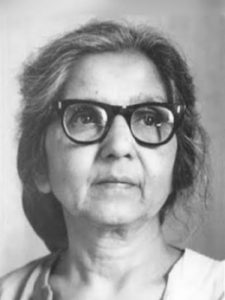
Her fearlessness and commitment to the freedom struggle earned her the moniker “Grand Old Lady of the Independence Movement.” After India gained independence, she continued to work for social causes and served as the first woman mayor of Delhi. Aruna Asaf Ali’s enduring legacy reminds us of the resilience and determination that defined India’s journey to freedom.
6. Begum Hazrat Mahal
Begum Hazrat Mahal, who lived in the 19th century, was a remarkable and courageous figure in India’s history. She was the queen of Awadh (Oudh), a region in northern India, and played a pivotal role in the First War of Independence in 1857 against the British East India Company’s rule. When her husband, Nawab Wajid Ali Shah, was exiled by the British, she took charge of the kingdom and led the rebellion against the colonial forces.
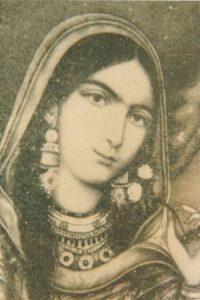
Begum Hazrat Mahal’s leadership and military acumen were instrumental in uniting Indian soldiers and civilians in their fight for independence. Her brave efforts in the face of adversity earned her a place of honor among India’s freedom fighters, and her legacy serves as a reminder of the unwavering spirit of those who struggled for India’s freedom from colonial rule.
7. Matangini Hazra
Matangini Hazra, a courageous woman who lived in the early 20th century, is remembered as one of India’s inspiring freedom fighters. Hailing from the village of Tamluk in West Bengal, she played a prominent role in the Indian independence movement. Matangini Hazra is particularly celebrated for her participation in the Salt Satyagraha in 1930, a pivotal moment in India’s struggle against British colonial rule.
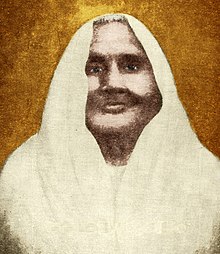
She led a peaceful procession to the Dharasana Salt Works in Gujarat, defying the British salt monopoly. Tragically, her nonviolent protest met with violence from British police, and she lost her life during the demonstration. Matangini Hazra’s sacrifice and unwavering commitment to the cause of freedom have left an enduring legacy, reminding us of the determination and sacrifice of countless individuals in India’s journey to independence.
8. Usha Mehta
Usha Mehta, a prominent figure in India’s fight for independence, was an ardent patriot and freedom fighter during the colonial era. Born in 1920, she dedicated her life to the cause of Indian independence and actively participated in the Quit India Movement of 1942. Usha Mehta is renowned for her role in establishing an underground radio station known as the “Secret Congress Radio.”

This clandestine radio station broadcasted messages of freedom and resistance against British rule, playing a crucial role in disseminating information to the masses and inspiring them to join the freedom struggle. Usha Mehta’s fearless dedication to the cause of independence and her innovative use of media to galvanize the public continue to be celebrated as a testament to the spirit of India’s fight for freedom.
9. Annie Besant
Annie Besant, a towering figure of the late 19th and early 20th centuries, was a woman of remarkable accomplishments and a staunch advocate for various social and political causes. Born in 1847 in London, she initially gained recognition as a prominent theosophist and writer. However, her journey took a significant turn when she moved to India and became deeply involved in the Indian freedom movement. Besant played a pivotal role in the Home Rule Movement, seeking self-governance for India within the British Empire.
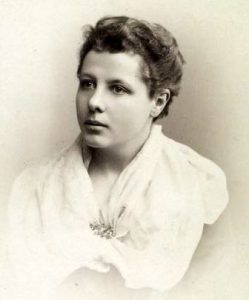
Her charismatic leadership and oratory skills made her a revered figure, and she worked closely with Indian leaders like Bal Gangadhar Tilak and Mahatma Gandhi. Annie Besant’s unwavering commitment to India’s freedom, her championing of education, and her advocacy for women’s rights continue to be remembered as important contributions to India’s struggle for independence and its social progress.
10. Durgabai Deshmukh
Durgabai Deshmukh, a prominent Indian freedom fighter and social reformer, left an indelible mark on India’s history with her multifaceted contributions. Born in 1909, she was a woman of exceptional talent and dedication. Durgabai was actively involved in the Indian National Congress and played a crucial role in the Civil Disobedience Movement and Quit India Movement, which aimed at liberating India from British colonial rule. Beyond her political activism, she was a strong advocate for women’s rights, education, and social reform.

Her efforts led to the establishment of several educational institutions and social welfare organizations, aimed at empowering marginalized communities. Durgabai Deshmukh’s tireless commitment to both India’s freedom struggle and social causes has left an enduring legacy, inspiring generations to work towards a more just and equitable society.
11. Vijay Laxmi Pandit
Vijaya Lakshmi Pandit, born in 1900, was an illustrious Indian diplomat and politician who made significant contributions to India’s history. She came from a prominent political family, being the sister of India’s first Prime Minister, Jawaharlal Nehru. Vijaya Lakshmi Pandit’s remarkable career included being India’s first woman to hold the position of ambassador to the Soviet Union, the United States, and the United Kingdom.
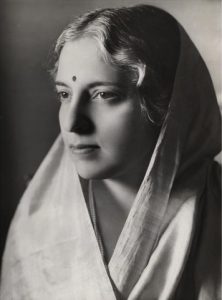
Her diplomatic acumen and leadership qualities earned her international recognition and respect. She also served as India’s representative to the United Nations and was the first woman to serve as the President of the United Nations General Assembly. Her legacy as a trailblazer in diplomacy and her tireless efforts in promoting India’s interests on the global stage continue to inspire women in India and around the world to break barriers and excel in fields traditionally dominated by men.
12. Madam Bhikaji Cama
Madam Bhikaji Cama, born in 1861, was a pioneering Indian freedom fighter and one of the earliest proponents of India’s struggle for independence on the international stage. She is best known for her role in unfurling the first version of the Indian tricolor flag in Stuttgart, Germany, in 1907, during the Second Socialist International Congress. Madam Cama was a staunch advocate for India’s self-rule and tirelessly worked to garner international support for India’s freedom movement.

Her contributions extended to her writings and speeches, which aimed at galvanizing Indians and the global community. Despite facing numerous challenges, including exile and health issues, she remained unwavering in her commitment to India’s independence. Madam Bhikaji Cama’s pioneering efforts on the global platform continue to be celebrated, serving as a source of inspiration for those who strive for justice and national sovereignty.
13. Kamla Chattopadhyay
Kamala Chattopadhyay, also known as Kamaladevi Chattopadhyay, was a remarkable Indian freedom fighter, social reformer, and cultural ambassador. Born in 1903, she was a multifaceted personality who made profound contributions to India’s struggle for independence and its cultural heritage. Kamaladevi was actively involved in the Civil Disobedience Movement and the Quit India Movement, working alongside prominent leaders like Mahatma Gandhi and Jawaharlal Nehru. Beyond her political activism, she played a pivotal role in reviving and promoting India’s traditional arts and handicrafts.
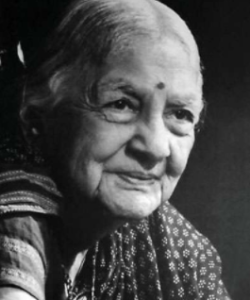
She founded organizations like the All India Handicrafts Board and the National School of Drama, working tirelessly to empower rural artisans and preserve India’s rich cultural heritage. Kamaladevi Chattopadhyay’s legacy as a freedom fighter and cultural revivalist continues to influence India’s cultural landscape and inspire those dedicated to preserving the country’s diverse traditions and values.
14. Sucheta Kriplani
Sucheta Kriplani, born in 1908, was a prominent Indian freedom fighter and one of the earliest women to take an active role in the country’s politics. Her contributions to India’s struggle for independence and post-independence governance are highly esteemed. Sucheta Kriplani played a significant role in the Quit India Movement and was imprisoned for her involvement in the freedom struggle.
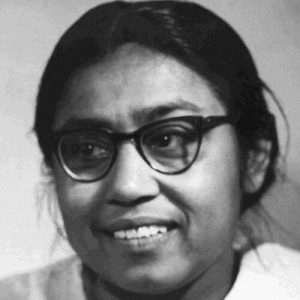
After India gained independence, she continued to serve the nation and became the first woman Chief Minister of an Indian state, serving as the Chief Minister of Uttar Pradesh from 1963 to 1967. Throughout her career, she championed women’s rights and social causes, leaving an indelible mark on India’s political and social landscape. Sucheta Kriplani’s legacy as a pioneering leader and advocate for women’s empowerment continues to inspire generations of Indians.
15. Kittur Chennamma
Kittur Chennamma, a valiant queen and freedom fighter, lived in the 19th century and remains an iconic figure in the history of India’s struggle for independence. She was the queen of Kittur, a princely state in Karnataka, and is remembered for her remarkable courage and leadership. In 1824, Kittur Chennamma valiantly led an armed rebellion against the British East India Company’s attempts to annex her kingdom. Despite facing overwhelming odds, she fought fiercely for her people’s freedom and sovereignty. Her indomitable spirit and sacrifice continue to inspire generations, and she is celebrated as a symbol of resistance against colonial oppression. Kittur Chennamma’s legacy stands as a testament to the unwavering determination of those who fought for India’s independence.
16. Savitribai Phule
Savitribai Phule, born in 1831, was a pioneering Indian social reformer, educator, and poet who made significant contributions to the fields of education and women’s rights during the 19th century. She, along with her husband Jyotirao Phule, played a pivotal role in championing the cause of women’s education and social equality in India. Savitribai Phule established the first school for girls in Pune in 1848, breaking societal norms and barriers that denied education to women.

Her unwavering commitment to the upliftment of marginalized communities, including women and the Dalits, was reflected in her work and writings. Her poems and writings conveyed powerful messages of equality and justice. Savitribai Phule’s legacy as a trailblazer in the field of education and a tireless advocate for social reform continues to inspire generations, particularly those committed to the empowerment of women and the marginalized in India.
17. Lakshmi Sahgal
Lakshmi Sahgal, affectionately known as Captain Lakshmi, was a formidable figure in India’s struggle for independence and a prominent leader in the Indian National Army (INA) during World War II. Born in 1914, she was a medical doctor by profession and served as an officer in the INA, which was formed by Subhas Chandra Bose to fight against British colonial rule. Captain Lakshmi led the Rani of Jhansi Regiment, an all-women contingent within the INA, and played a crucial role in mobilizing women for the freedom movement.
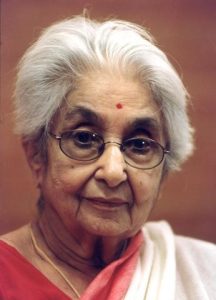
She used the Azad Hind Radio to spread anti-British propaganda and boost the morale of soldiers and civilians. Her participation in the Battle of Imphal and Kohima showcased her bravery and commitment to the cause. After India gained independence, Captain Lakshmi Sahgal continued to be active in politics and social work, advocating for women’s rights and social justice. Her life and contributions serve as a shining example of courage, dedication, and leadership in India’s struggle for freedom and social progress.
Women freedom fighters played a pivotal role in India’s struggle for independence from British colonial rule. Their contributions were multifaceted and crucial in various aspects of the freedom movement. Here are some of the key roles women freedom fighters played:
The contributions of these women were instrumental in building a broad-based, inclusive, and sustained movement for independence. Their resilience and determination continue to serve as a source of inspiration for generations of Indians and people worldwide.
Ready to boost your UPSC 2025 preparation? Join PW’s UPSC online courses today!
Women Freedom Fighters of India were courageous women who actively participated in India's struggle for independence from British colonial rule. They played pivotal roles in various movements and contributed significantly to the freedom struggle.
Rani Lakshmibai, often recognized as Jhansi ki Rani, stands as a prominent and pioneering female figure in India's struggle for independence. She fearlessly engaged the British forces in solo combat, displaying remarkable courage and determination.
The top 5 female freedom fighters were Rani Lakshmibai, Sarojini Naidu, Kamala Nehru, Kasturba Gandhi, and Aruna Asaf Ali.
Suniti Choudhury is recognized as one of the youngest female freedom fighters in India's struggle for independence. She actively participated in various protests and movements against British rule, showcasing remarkable dedication and courage at a young age.
Women Freedom Fighters made significant contributions by participating in protests, civil disobedience movements, and political activities. They also advocated for women's rights, education, and social reform.

<div class="new-fform">
</div>